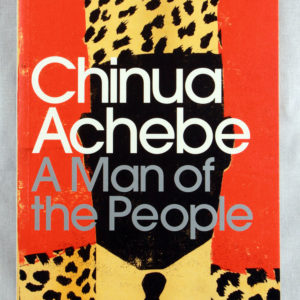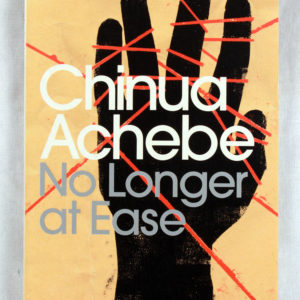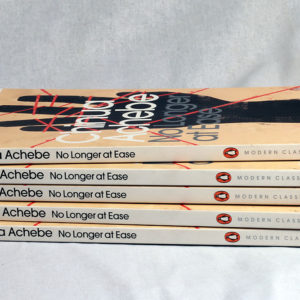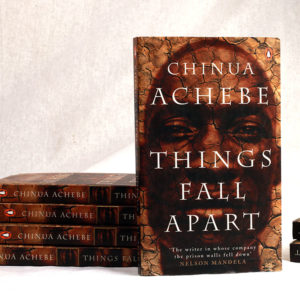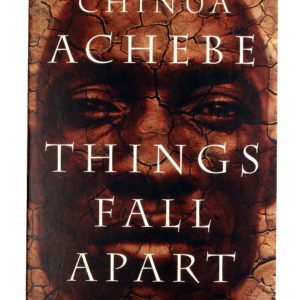Filter
A Man of the People (1966) is a novel by Nigerian writer Chinua Achebe. Written as a satirical piece, A Man of the People follows a story told by Odili, a young and educated narrator, on his conflict with Chief Nanga, his former teacher who enters a career in politics in an unnamed fictional 20th century African country. Odili represents the changing younger generation; Nanga represents the traditional West African customs, inspired by that of Achebe’s native Nigeria. The book ends with a military coup, similar to the real-life coups of Johnson Aguiyi-Ironsi, Chukwuma Kaduna Nzeogwu and Yakubu Gowon.
Anthills of the Savannah is a 1987 novel by Nigerian writer Chinua Achebe. It was his fifth novel, first published in the UK 21 years after Achebe’s previous one (A Man of the People in 1966), and was credited with having “revived his reputation in Britain”. A finalist for the 1987 Booker Prize for Fiction, Anthills of the Savannah has been described as the “most important novel to come out of Africa in the [1980s]”. Critics praised the novel upon its release.
No Longer at Ease is a 1960 novel by Nigerian author Chinua Achebe. It is the story of an Igbo man, Obi Okonkwo, who leaves his village for an education in Britain and then a job in the Nigerian colonial civil service, but is conflicted between his African culture and Western lifestyle and ends up taking a bribe. The novel is the second work in what is sometimes referred to as the “African trilogy”, following Things Fall Apart and preceding Arrow of God. Things Fall Apart concerns the struggle of Obi Okonkwo’s grandfather Okonkwo against the changes brought by the English.
More than two million copies of Things Fall Apart have been sold in the United States since it was first published here in 1959. Worldwide, there are eight million copies in print in fifty different languages. This is Chinua Achebe’s masterpiece and it is often compared to the great Greek tragedies, and currently sells more than one hundred thousand copies a year in the United States.
A simple story of a “strong man” whose life is dominated by fear and anger, Things Fall Apart is written with remarkable economy and subtle irony. Uniquely and richly African, at the same time it reveals Achebe’s keen awareness of the human qualities common to men of all times and places.

